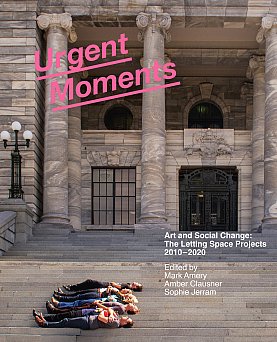Graham Reid | | 1 min read

Much contemporary art aiming for controversy has a short shelf-life. It takes the grand gesture – Damien Hirst's shark in formaldehyde or diamond-encrusted skull – to really get people talking.
Who now remembers the early 90s controversy around Virgin in a Condom – a meagre idea poorly executed - let alone the artist's name? Sex and Catholicism: the clickbait of its time.
But controversy is good for the art business which rarely gets public attention, even if it's used to raise the wearisome and threadbare question, “What is art?”, often coming from artists who – in their refusal or inability to explain their work – leave it to curators, gallery owners or cheerleaders to essay it into existence and load it with meaning.
Installation or conceptual art faces special problems: by its very nature it's often here and gone.
Of course, there's nothing in the contract which says art needs to be permanent but once it’s gone social media chatter moves on, headlines (if there have been any) turn to sepia and . . . what's left?
That's why this well designed, illustrated book of essays and comment is important.
The subject is the Letting Space Projects – offices, rooms and outdoor spaces taken over by conceptual artists – and its prime movers Mark Amery and Sophie Jerram's self-imposed challenge to “transform the relationship between artists, the public and their environments to enable social change.”
That's a big ask, but if art can't always effect social change it can prepare its audience for questioning and dissent.
If not all Letting Space projects succeeded, at their best they challenged convention and forced questions - not just about art but social structures, economics, commerce and accepted practices - into the public domain.
One of the most quietly goading, witty and controversial was Tao Wells' Beneficiaries Office staged in Wellington in late 2010.
Wells argued that, among other things, the unemployed use up fewer resources so . . .
.
To read the rest of this review/article go to Kete Books here.





post a comment